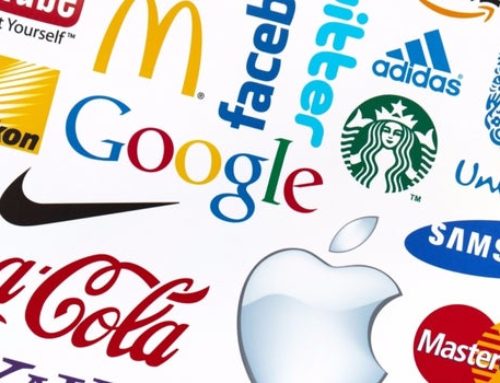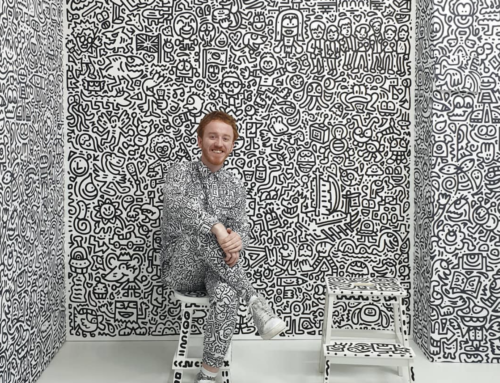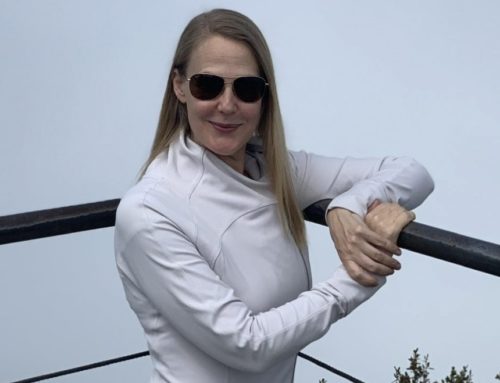“If you want to be a leader, you have to be a real human being.”
– Master Nan Huai Chin, author, scholar, one of the most renowned lay Buddhist masters in Asia.
A Pause Releases Opportunity
The pandemic has caused everyone to pause, particularly companies aggressively selling or marketing their products and services. In pausing, many are reconsidering how to engage people and questioning historical practices in light of our new world. Some have even started to recognize that people need help, real emotional help to navigate, embrace and even thrive during this extended, challenging, upside down period. Aside from unemployment rising, anxiety, depression and sensitivities are also rising – and maybe even deepening. People are on edge in all kinds of ways as life has become a walk along a narrow ledge with no end in sight. With ongoing disruption becoming a way of life, human beings are in need of emotional strength, empowerment, comfort and relief. Brands can help.
Brands Need to Serve, Not Sell
For years, people have been demanding that companies do more than sell and also serve to build a better world. This has caused a rise in corporate philanthropy and social responsibility, ethical and transparent business practices and brands activating on social issues. From Walmart stopping sales of handguns to Chobani hiring refugees to Starbuck’s social impact work, companies have started to wake up and embrace their ability (perhaps their responsibility) to advance positive change. Despite the significant risks involved, companies that have stepped up have increased revenues and brand value from their efforts.
- 2014: CVS eliminated the sale of tobacco products in its more than 7,600 stores putting at risk the $2B a year it earned from tobacco shoppers. Research suggests that this move actually reduced the national smoking rate. This move helped the CVS brand authenticate its position as a leader in healthcare and also supported steady annual revenue growth. CVS continues to take steps to create the first tobacco-free generation and in June 2019, CVS Health announced a new $50 million campaign to help stop teen vaping.
- 2018: Nike’s advertising support of Colin Kaepernick, the NFL star who kneeled during the National Anthem to protest racial injustice, helped Nike despite vocal critics. The company has boasted higher North American sales growth and a better brand image since the campaign. Nike’s CEO Phil Knight says this about the effort: “It doesn’t matter how many people hate your brand as long as enough people love it. And as long as you have that attitude, you can’t be afraid of offending people. You can’t try and go down the middle of the road.You have to take a stand on something, which is ultimately I think why the Kaepernick ad worked.”
Brands Now Need to Take Care of People
There is a new social need emerging from the dark corners of ongoing disruption and revolutionizing technologies, the weakening of humanity. This is the loss in a person’s sense of self in the world, strength in the face of uncertainty and confidence in one’s ability to have any control at all – at scale.
Best-selling author Joshua Cooper Ramo during a panel talk at the NYC Public Library in 2018, shared a story from the notable Chinese Zen Master, scholar and teacher Master Nan Huai-Ch’in who talked about the greatest challenge of the 21st century. Considered one of China’s foremost contemporary thinkers, Nan said that the disease of the 20th century was cancer, because the human body could not change quickly enough to adapt to the revolutions of science. In the 21st century, he predicts that insanity will be the great challenge, as human beings will be unable to adapt to the unthinkable events and changes they encounter on a regular basis. Today, as we think about ongoing mass shootings, the astronomical rise in deaths of despair (American drinking themselves to death, poisoning themselves with drugs, or shooting or hanging themselves) and unthinkable human-made atrocities we see in the news, it seems that Master Nan might be on to something. Even without the facts and figures, we all observe the change around us.
To combat this challenge, people need to have strength of mind and conviction, what some call resiliency. In simpler terms, people basically need a booster shot in strength, comfort, confidence and to be given greater agency in the world so they feel meaning and purpose. Here is where brands can help. Some people lack what is needed for resiliency. They don’t have strong families and friends, a religious group or support community, a fabulous upbringing or inspiring memories, or even a significant other. But, everyone has brands tucked into their mind.
Since brands live in our individual and collective emotional imaginations, they are assets sitting in the exact place where help is needed most. Brands have the ability to activate in our minds to catalyze, ignite and shift how we think and feel. Like a transformative movie or piece of art, a brand can be infused to lift us up and transcend us to other places – and keep us there. They can help us to open our minds and hearts to dream and believe. The Army once helped us feel we could “Be all that we can be” and Livestrong gave us the guide to overcome cancer and its challenges with emotional strength. Think about brands as “mental” assets that can be activated to fuel the imagination to help people re-frame from negative to positive, and to grow rather than wither during uncertainty and change.
Creating a Brand Caretaker: A New Brand Strategy
Brands now need to care for people. Similar to social impact efforts, brands that step up to help humanity will benefit from doing so, and also contribute to the greater good. Maybe your brand is a candidate to become a Brand Caretaker. Think about the challenges facing your brand audience and what’s lurking in the corner where no one is looking. Imagine the role your brand might play by activating it to become a Caretaker. In what specific way, given its equities, might it be able to help? Perhaps, it can act as a stabilizer or can empower in a specific way or can make people laugh to give them the emotional relief needed and a chance to “feel” their humanity? This is a new kind of brand strategy, one where you build on your brand equities to lead people to persevere and grow. If you agree that humanity may be getting into the deep end of a pool that it doesn’t know how to swim in very well, explore becoming a Caretaker Brand. This is not to suggest that you re-invent or re-brand, rather evolve your brand to add a Caretaker role that will increase its relevancy and connection by driving greater human power.
In a world where brands need constant tweaking to stay current, explore the hidden emerging truths of humanity to discover opportunities. By becoming a Caretaker Brand, your brand will emotionally serve people at a time when they need it most. Imagine a world of Caretaker Brands acting as positive reinforcers across the culture and contributing to everyone’s daily life. This is one way in which humanity can get some of the booster shot it needs to be resilient. As a Caretaker Brand in your category, you will add a unique brand advantage that will support greater business value and also make your company part of building a stronger humankind.
FACT FOR THOUGHT
65,000 to 158,000
Deaths of despair – deaths by suicide, alcohol-related liver disease, and drug overdose – have risen rapidly since the mid-1990s, increasing from about 65,000 per year in 1995 to 158,000 in 2018.
– Deaths of Despair and the Future of Capitalism by Anne Case and Angus Keaton
Photo Credit: Edoardo Cuoghi on Unsplash
Enjoying Overhead Space? There’s More to Love.
Subscribe to Overhead Space to receive mind-expanding content that helps you connect the dots in new ways.




